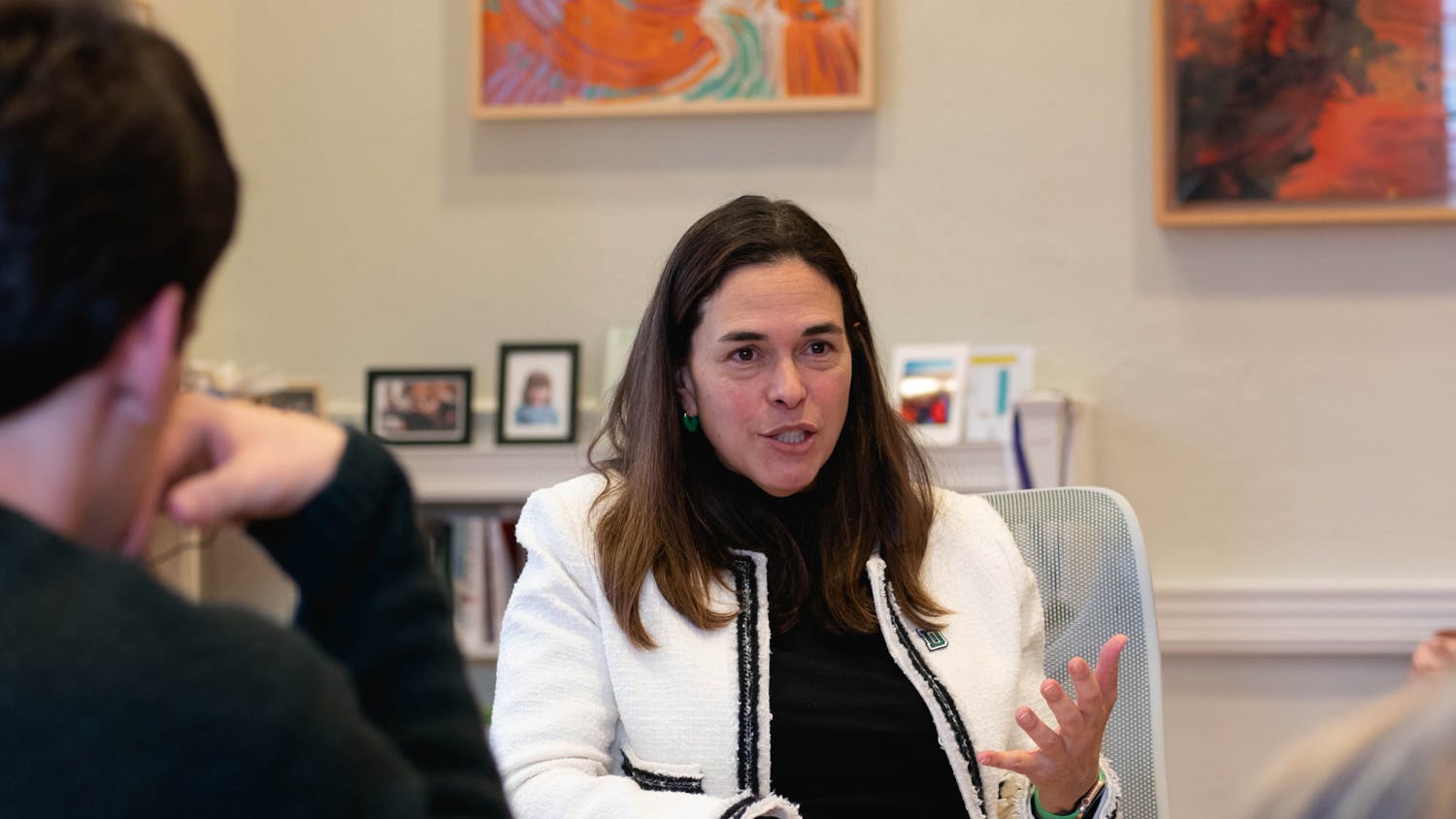“Sign up on Trailhead!” was a sentence I heard many times my freshman fall after going to a meeting for the Flora and Fauna sub-club. In search of more wild adventures, Trailhead quickly became my go-to website whenever I wanted to take part in an exciting outdoor activity. Since 2020, Trailhead — the online platform through which students sign up for Dartmouth Outing Club trips — has been one of the hallmarks of the outdoor experience at Dartmouth.
According to Outdoor Programs Office assistant director and DOC general manager Rory Gawler ’05, a DALI Lab team began developing Trailhead in 2019 before Ziray Hao ’22, a student DALI Lab software engineer. Today, the platform is maintained by Alex Petros ’19, a former member of the Ledyard Canoe Club.
Though few current students know how the DOC operated prior to the platform, even fewer understand how Trailhead has transformed the organization.
According to former DOC stewardship chair and Flora and Fauna co-founder Wyatt Cummings ’24, students who wanted to go on a DOC trip before the invention of Trailhead had to attend the relevant weekly meetings of a given DOC sub-club to sign up on paper. Cabin and Trail leader Rowan Gregoire ’23 added that students could also cold-email a trip leader once each sub-club sent out an email with the trips for the week.
Diana D’Souza ’23, who was a freshman before Trailhead’s inception, said the previous system made it difficult for her to get involved in the DOC at first.
“[Going to a CnT meeting and signing up for a trip] was intimidating for me because I didn’t have any experience hiking,” D’Souza said. “I never went [on a trip] my entire freshman year except for my first-year trip.”
After Trailhead was launched, however, D’Souza said she “felt that the DOC was much more inclusive” since “anyone could be accepted onto a trip” regardless of their experience level.
Though some students feel more included because of Trailhead, others acknowledge it has changed the way the DOC builds community. Former CnT and People of Color Outdoors chair Solange Acosta ’24 said “there was a lot more intention for signing up for a trip” prior to Trailhead.
These days, she said, “it’s just so easy to click and unclick” — to join or deregister for a trip. According to Rodriguez, DOC trips no longer have the same community-building power they once held.
“Community is [now] built at [club dinners] and in meetings, less so on trips,” Rodriguez said.
Despite the varying opinions on Trailhead’s impact, Cummings said the website has streamlined the process of organizing trips. Not even five years ago, before Trailhead was introduced, organizing and running trips was a battle of its own.
“Pre-Trailhead, [planning trips] was a lot more work on the [trip] leader’s side and on the Outdoors Programs Office side,” Rodriguez said.
With Trailhead, trip leaders are able to request a vehicle for transportation and delineate planned budgetary expenses without running around campus trying to get approvals, according to Gregoire.
These days, tens of trips go out every week — a feat that many leaders, like Cummings, believe would be infeasible without Trailhead, which has made it “so much easier for people to lead trips.”
“You just fill in all your details [on Trailhead],” Cummings said. “You put what day and time [your trip] is going to be, and you write the description. [I lead] three or four trips a week, and I would not be doing that if it wasn’t this easy.”
Gawler pointed out that Trailhead has also made DOC trips safer. Thanks to Trailhead, the OPO now has easy access to every trip’s information, including the participating students, leaders, destination, departure time and planned time of return.
Since the creation of Trailhead, Gawler said the OPO has someone who is “looking at [trip] plans and saying, ‘If these folks don’t get back by a certain time, I need to do something about it.’”
The data stored in Trailhead has not only allowed the OPO to keep track of trips and ensure those involved return to campus safely but has also been “super helpful” in allowing the DOC to become more efficient, according to Gawler.
“Elliot Ng [’21], who works in our office, [did] a little analysis and [realized that] we keep buying these 10 to 12 passenger vans, [when] the median number of people on a trip is six,” Gawler said. “We need an electronic system to help us track all this.”
Trailhead’s multifaceted approach is only possible because the platform keeps evolving, Petros said.
“[During the] fall of 2022, Trailhead was experiencing a number of technical issues,” Petros said. “It was slow [and] unreliable … Trailhead [version] 2 looks very similar to Trailhead [version] 1, but it uses a different set of technologies.”
The code for the latest version of Trailhead is open source and stored on GitHub, where anybody can view it. Just as students developed Trailhead, future generations can continue to suggest improvements to it, Petros explained.
“If there are things people think Trailhead should do, they are very welcome to propose it,” Petros said. “It’s meant to be used by the community, [and] I want to [help] bring people’s ideas into Trailhead.”
James Underwood ’27, a Flora and Fauna sub-club member with a passion for computer science, aspires to code a feature of his own and create a “Trailhead calendar” — a feature he wishes he had to keep track of trips.
“I’m interested in implementing a way for a user to subscribe to a Trailhead calendar, which automatically populates [the user’s] calendar with all the Trailhead trips for which they’ve been approved,” Underwood said.
Gawler also expressed hope that Dartmouth students can work together to make Trailhead “more of a collaborative project.”
“Lots of students are [computer science] majors and learning these skills,” Gawler said. “They can collaborate, and we’ll integrate [their code] with the software, and it would be awesome. I even have a group of alums who have offered to advise [and mentor students].”
Trailhead has already changed the DOC by connecting OPO staff, trip leaders and trippees — and as the platform continues to evolve, it will surely open up the outdoors more than ever for the Dartmouth community.




